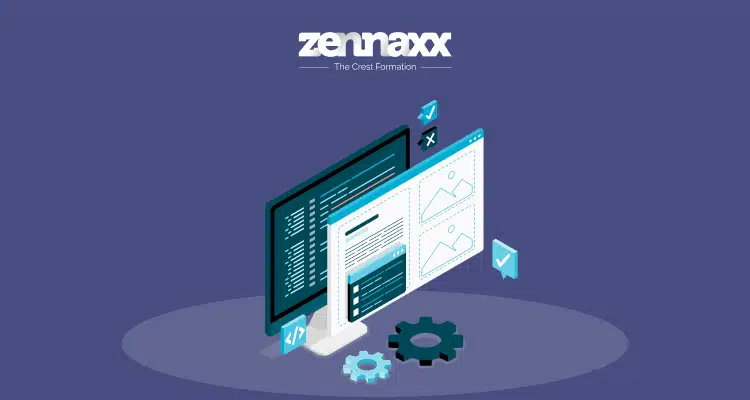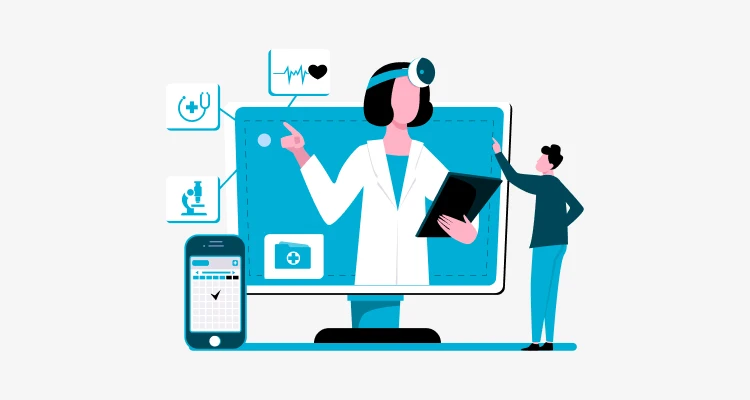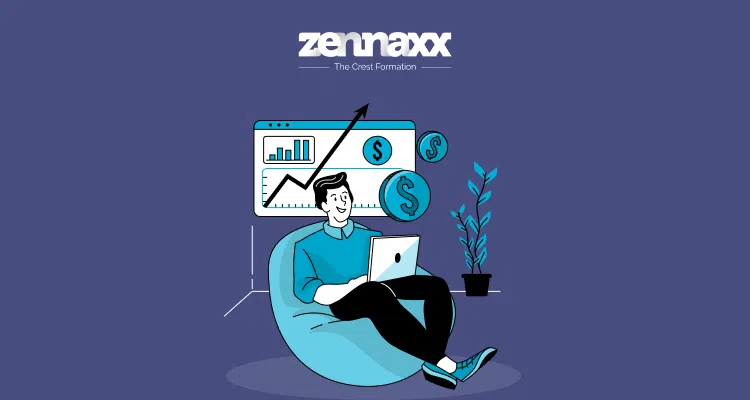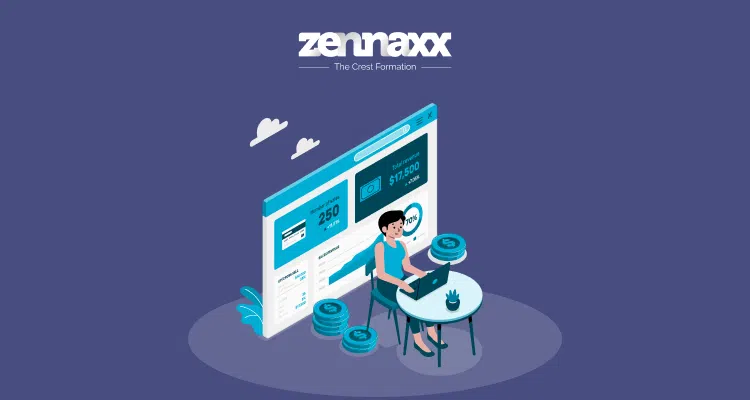Worry not! We have expert ideas to help you take your business to the next level. We create 16 types of healthcare software development ideas to build an online medical business.

The Role Of Software In Healthcare Industries
This software helps the medical field progress by making hospitals work more quickly and effectively.
16 Types Of Healthcare Software That You Can Use
Some are for the patients, and others are for research, clinical management, or making predictions. Every types of healthcare software is very important for improving the quality and efficiency of care in the healthcare industry.
1. Electronic Health Record (EHR) Software
Many EHR systems also feature financial modules for billing and payments and offer a patient portal. This portal lets patients access their consultation history, medical records, and prescriptions.
- Electronic Patient Record (EPR) Software: Used internally by hospitals to manage and process patient information.
- Electronic Medical Record (EMR) Software: Stores detailed data on medications, dosages, past and planned procedures, and the patient's recovery progress.
2. Telemedicine Software
- Improving Treatment Decisions: Doctors can cross-reference a patient's case with similar cases to make better-informed decisions.
- Educational Resource: Physicians can review clinical cases of specific diseases to enhance their knowledge.
3. Telehealth Software

4. Medical Equipment Management
Medical equipment management software simplifies medical equipment maintenance, reducing the need for hospital staff to perform manual tasks.
It automates inventory tracking for numerous expendable items and provides alerts when supplies need restocking.
5. Apps For Tracking Your Health
Although not “professional” medical software, health-tracking apps provide valuable health-related data.
6. Hospital Management Software (HMS)
7. Medical Diagnosis Software
8. Medical Imaging Software
As 3D printing technology advances and becomes more widespread, medical imaging software’s role in creating customized medical solutions will become increasingly significant.
Ready to Transform Your Healthcare Experience with Innovative Software?
Have questions or ready to take the next step? Reach out to us today and let’s innovate together.
9. Healthcare Billing Software
- Making reimbursement rates higher and easier to get
- Monitoring the healthcare organization's finances
- Automating and keeping track of money flows
10. E-Prescribing Software
- Quick Adjustments: Changing or extending a prescription is done with a few clicks.
- Efficiency: Saves time for healthcare providers and patients by streamlining the process.
- Convenience: Reduces the need for physical paperwork and walks to the pharmacy.
11. Medical Research Software
12. Pharmacy Management Software
- Efficient Workflow: Routes tasks among various systems, such as robotic prescription vending.
- Accessibility: Allows pharmacy employees access to prescription information across the pharmacy or health system.
- Inventory Control: Streamlines drug inventory management for better monitoring and optimization optimization.
- Claims Automation: Simplifies claims processing for improved efficiency.
13. Medical Database Software
- Disease Information: Regularly updated disease data to aid doctors in diagnosis and treatment.
- Treatment Plans: Detailed plans that can be referenced for patient care.
- Case Reports: Documentation of various medical cases to support clinical decisions.
14. Patient Management Software
- Medical Invoicing: Automates billing processes for services provided to patients.
- Inventory Management: Tracks and manages medical supplies and equipment.
- Appointment Scheduling: Facilitates efficient scheduling of patient appointments.
- Lab Testing Management: Coordinates and tracks lab tests ordered for patients.
15. Healthcare RCM Software
Such devices, enterprise resource planning (ERP) software, and other tools allow healthcare organizations to utilize data-based healthcare management and operational optimization.
16. Remote Patient Monitoring (RPM)
These technological advancements are revolutionizing how healthcare works now and in the future. Choose the right advanced healthcare software development industry.
Want to Automate Your Business Process With a Software Solution?
Zennaxx, a leading software development firm in Canada, has delivered 700+ bespoke solutions spanning various industries.
Unique Features Of Software Used In The Healthcare Industry
Geolocation
Healthcare Analytics
Patient Portals
A robust portal system installation is expected to contribute significantly to patient satisfaction with the overall care experience. Patients can save their medical bills and receive new appointments through the portal.
Portal also provides access to the direct doctor if the doctor wants to connect with or share contact with their patients with a request. So that regular customers can get regular consultations with doctors.
Voice Recognition
Upgrade Your Every Type Of Healthcare Software With Zennaxx's Healthcare Software Development Service
Every type of healthcare software has features and capacities that must be unique and suit the specific needs of healthcare providers.
Custom healthcare software solutions company Zennaxx offers competitive healthcare software development services that build the future of the healthcare industry.
We’re an outsourcing company that makes health software. We can develop different types of healthcare software of any complexity or improve healthcare apps already out there.
Our skilled team makes the any types of healthcare management software if you want to win the market, improve healthcare, and make patients happier.
When you work with us, your healthcare software will get our full attention in development. We will use many high-performance tools and parts to improve every type of healthcare software development.


